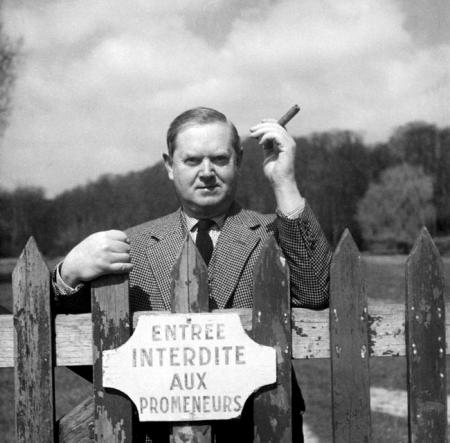In today’s Wall Street Journal “Sightings” column I endeavor to give my colleagues–and myself–some good advice. Here’s an excerpt.
* * *
The obituaries for Hilton Kramer, the celebrated art critic who died last month, all made prominent mention of his devastatingly terse appraisals of those artists and institutions whose work he found wanting. It was Mr. Kramer, for instance, who dismissed the Whitney Museum of American Art’s biennial exhibitions as “funky, kinky, kitschy claptrap.” But he was no less admired, if far less well known, for his powers as an advocate. Like all great critics, he knew how to praise, and his paeans to such underappreciated American modernists as Fairfield Porter and Milton Avery (whose later canvases he ranked “among the greatest paintings ever produced by an American artist”) did much to make their work more widely known.
Why, then, was this aspect of Mr. Kramer’s long career overlooked when he died? Because bad reviews always make a bigger splash than good ones. And why should this be so? Because critics tend as a general rule to do their most memorable writing about works of art that they dislike. In the words of Anton Ego, the haughty restaurant reviewer in Brad Bird’s film “Ratatouille,” they “thrive on negative criticism, which is fun to write and to read.”
 So it is–but as any critic can tell you, it’s also harder to praise than to pan. The reason for this is that the language of abuse is vastly more vivid than the language of praise. Evelyn Waugh, who in addition to being a great novelist was a superb book reviewer, neatly summed up this problem in a 1937 essay: “There are infinite gradations of blame, a thousand fresh and pungent metaphors for detraction, the epithets of dissatisfaction seem never to stale…but the moment one finds a work which genuinely impresses and delights, there seems no article of expression other than the clichés that grin at one from every publisher’s advertisement.”
So it is–but as any critic can tell you, it’s also harder to praise than to pan. The reason for this is that the language of abuse is vastly more vivid than the language of praise. Evelyn Waugh, who in addition to being a great novelist was a superb book reviewer, neatly summed up this problem in a 1937 essay: “There are infinite gradations of blame, a thousand fresh and pungent metaphors for detraction, the epithets of dissatisfaction seem never to stale…but the moment one finds a work which genuinely impresses and delights, there seems no article of expression other than the clichés that grin at one from every publisher’s advertisement.”
Above all, it’s inordinately difficult to use humor to praise a good work of art, whereas nothing is easier than to crack jokes about a bad one. The drama critic Kenneth Tynan was, like Mr. Kramer, a passionate enthusiast, yet it is his pans that people quote to this day, and the lines that get quoted are invariably the funny ones–very often, to be sure, because their wit is wrapped around a hard core of truth. When Mr. Tynan described T.S. Eliot’s “The Family Reunion” as a “has-been, would-be masterpiece,” or wrote in a review of “Antony and Cleopatra” that Vivien Leigh “picks at the part [of Cleopatra] with the daintiness of a debutante called upon to dismember a stag,” you could hear the thunk of the arrow hitting the bull’s-eye.
What is easiest to do, alas, tends to get done rather more often than it should, and nothing is easier than to make fun of that which you don’t understand….
* * *
Read the whole thing here.
An excerpt from Brad Bird’s Ratatouille. Anton Ego’s voice is dubbed by Peter O’Toole:
Terry Teachout on the arts in New York City
An ArtsJournal Blog
